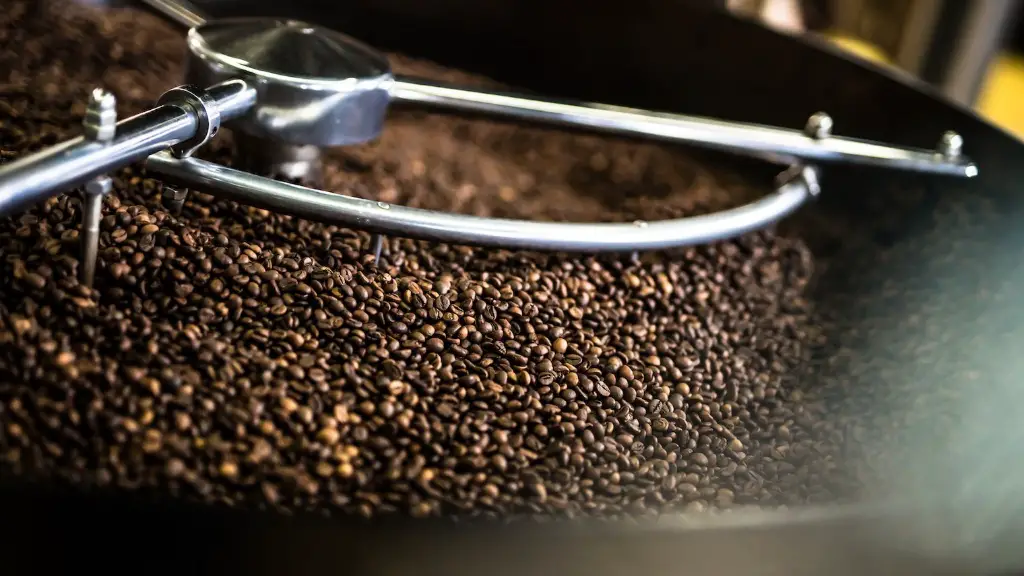The question of whether caffeine can be consumed during pregnancy is often a source of confusion for many expecting mothers. It’s important to be informed about the facts about the potential risks associated with caffeine to ensure the health of both mother and baby. While there is no shortcut solution, a balanced, thoughtful approach can help to put your mind at ease.
Some studies have suggested that consuming more than 200 milligrams of caffeine per day – which is around two 8-ounce cups of caffeinated coffee – during pregnancy can increase the risk of miscarriage and low birth weight, while early Delivery can also be linked to consuming an excessive amount of caffeine. It is important to note, however, that excessive caffeine intake during pregnancy remains controversial, with research on the effects varying widely.
Dr Daniel Roshan, a professional Obstetrician and Gynecologist, states: “It is important for pregnant women to be mindful of their caffeine intake, as it is known to cross the placenta and increase fetal heart rate and blood pressure. Too much caffeine could cause premature labor and delivery as well as impair fetal growth. I would advise pregnant women to reduce their intake and limit consumption to no more than 200 mg per day or about two cups of coffee.”
The American College of Obstetricians and Gynecologists (ACOG) suggests cutting down on coffee consumption during pregnancy. Caffeine can act as diuretic, which may interfere with the absorption of essential nutrients. Additionally, caffeine affects the central nervous system and can cause jitteriness and anxiety, as well as nausea and symptoms resembling those of heartburn. Issues with sleeping are also related to excessive caffeine consumption.
It is important to note that coffee is not the only source of caffeine. Furthermore, a distinction should be made between natural and artificial sources of caffeine, as well as between caffeinated and decaffeinated coffee. The latter contains at least 97% percent less caffeine than standard coffee and can be consumed without worrying about any possible effects on the baby, although excessive consumption is still not recommended.
A number of herbal beverages are also available and can be consumed safely during pregnancy, including peppermint tea and ginger tea. You should, however, pay attention to the caffeine content, as some of these drinks may contain moderate levels of caffeine, which can accumulate if consumed in large quantities.
Finally, it’s important to be aware of the fact that each pregnancy and each expectant mother is unique and that, while it is important to be mindful of caffeine intake and to avoid excessive consumption, a little indulgence can be allowed occasionally in moderation.
Health Issues Associated with Caffeine Consumption During Pregnancy
When it comes to consuming caffeine during pregnancy, the main concern is the impact on the developing baby, as the effects can be considerable. Studies have suggested that caffeine consumption during pregnancy can lead to a host of different health issues, such as miscarriage, low birth weight and early delivery. Additionally, caffeine consumption can also be linked to an increased risk of stillbirth, which is a particularly troubling issue for expectant mothers.
This is mainly due to the fact that caffeine is a diuretic, which can affect the absorption of essential nutrients and can increase the mother’s heart rate and blood pressure. This can in turn have an adverse impact on the baby, leading to premature labor and birth, and even possibly impairing the growth of the unborn child.
Dr. Roshan highlights that “There are certain physiological effects that come into play when a pregnant mother has large amounts of caffeine, such as dehydration and accelerated release of catecholamines like adrenaline, which can be dangerous.” It is therefore important to be aware of the potential issues related to caffeine consumption, and to take the necessary steps to reduce the risk of complications during pregnancy.
Caffeinated vs Decaffeinated Coffee
Many expecting mothers are understandably concerned about consuming caffeine during pregnancy, especially when it comes to the question of coffee. While there is no definitive answer, it is important to be aware of the distinction between caffeinated and decaffeinated coffee, and the benefits of opting for one or the other.
Caffeinated coffee contains about 95% more caffeine than decaffeinated coffee, which means that it is far more likely to have adverse effects on a pregnant woman’s health. Decaffeinated coffee still contains a certain amount of caffeine, but it is usually only around 7 milligrams per cup, which is a considerable decrease when compared to the average of 97 milligrams per cup of standard coffee.
Choosing to drink decaffeinated coffee can be a safer option, as it eliminates most of the potential risk associated with caffeine consumption during pregnancy. As Dr. Roshan points out “Decaffeinated coffee is generally considered to be safe during pregnancy and can be consumed in moderation.”
Alternatives to Coffee During Pregnancy
With the potential risks associated with caffeine consumption, many expecting mothers opt for a caffeine-free alternative to coffee, such as herbal tea. There are numerous different options available, such as peppermint tea, ginger tea, and other flavors such as chamomile or rooibos.
These types of teas are naturally caffeine-free and are rich sources of antioxidants and other beneficial nutrients, which can help to support a healthy pregnancy. Furthermore, herbal teas can have calming and soothing effects, which can be particularly beneficial during pregnancy.
Although herbal teas are generally considered to be safe, you should check the labels before purchasing, as some teas may contain certain herbs that should be avoided during pregnancy. For instance, raspberry leaf tea is said to be beneficial for pregnant women, although it has not been proven to be safe.
Moderation Is Key
It is important to remember that caffeine is not the only source of potential risks during pregnancy, and reducing or eliminating coffee consumption is only one part of a healthy pregnancy. Eating nutritious food, engaging in exercise, and getting enough sleep are all essential for a healthy pregnancy and the healthy development of the fetus.
Dr. Roshan outlines that “It is important for pregnant women to make sure that they are eating a balanced diet and following a healthy lifestyle.” Furthermore, it is also important to be mindful of other sources of caffeine, such as energy drinks, chocolate, and sodas, as even small amounts can accumulate over time and have an adverse effect on the growth and development of the baby.
Ultimately, it is important to keep a balanced perspective on the matter, and to make sure that any decisions you make regarding caffeine consumption during pregnancy are based on reliable sources and have the health of mother and baby as the primary concern.
Supplements During Pregnancy
Taking prenatal supplements during pregnancy is very important, as it is thought to help the development of the fetus and to reduce the risk of complications during childbirth. Prenatal vitamins contain a variety of different vitamins and minerals, such as folic acid, iron, and Vitamin D, which can support the healthy development of the baby.
Prenatal supplements can be taken in either pill or liquid form. Some doctors recommend taking both together, as this can allow for a more balanced intake of the essential vitamins and minerals. Additionally, taking a liquid supplement can be beneficial, as the absorption rate is much faster than with pills.
It is important to note that supplements should be taken in moderation and under the supervision of a doctor. Taking too many supplements can be dangerous, as it can lead to an over-accumulation of certain vitamins and minerals, which can be damaging for both mother and baby. Therefore, it is advisable to only take the supplements prescribed by your doctor, and to follow the instructions carefully.
Other Habits to Avoid During Pregnancy
Aside from caffeine consumption, there are numerous other habits that expectant mothers should avoid or be particularly mindful of during pregnancy. For instance, smoking cigarettes, drinking alcohol, and consuming large amounts of sugar are all discouraged during pregnancy, as they can have an adverse effect on the developing baby.
Additionally, it is also recommended to avoid exposure to toxins, chemicals, and pollution, as these can have a negative impact on both mother and baby. It is also important to avoid extreme hot or cold temperatures, as this can put stress on the body and create an uncomfortable environment for the baby.
Exercising regularly is also important during pregnancy, although it is recommended to keep activity levels moderate. Exercise can help to reduce stress and promote healthy development, but certain activities – such as running and lifting weights – should be avoided or kept to a minimum. Swimming, walking, and yoga are all great options, as they are low-impact and can help to keep expectant mothers in shape, as well as helping to improve overall well-being.
Staying Informed During Pregnancy
It is important to stay informed about your pregnancy, and to be aware of the potential risks associated with activities such as caffeine consumption. As Dr. Roshan explains: “Pregnant women should be mindful of the amount of caffeine they are consuming, as it can have an effect on the fetus. I would advise expecting mothers to be aware of the potential risks and to consult their doctor or seek other medical advice to ensure the health of both mother and baby.”
Information and knowledge are key when it comes to ensuring the health of mother and baby, and it is important to be aware of the potential risks associated with certain activities and habits. Consulting with a doctor or a healthcare professional on a regular basis is essential, and can help to ensure a healthy pregnancy.





